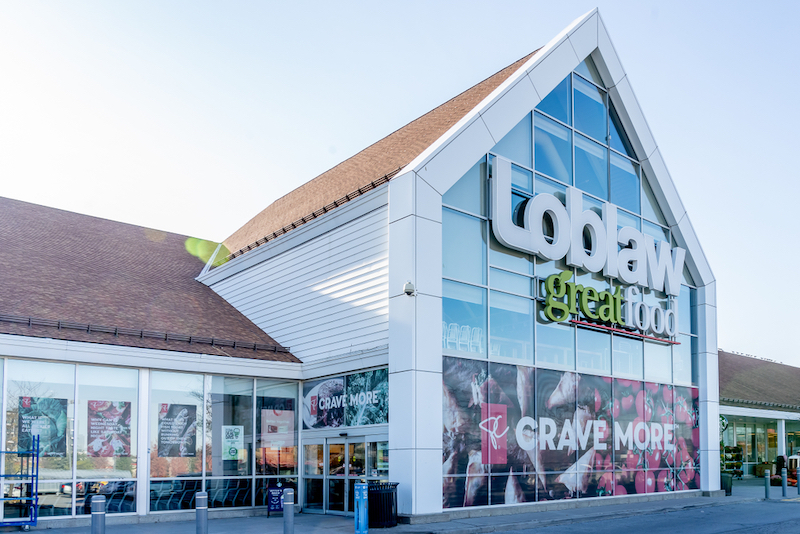Stop me if you’ve heard this one. A giant Canadian corporation is part of a federal investigation for serious wrongdoing — and granted leniency under government rules.
At the same time, it’s about to cash in on benefits from the same government.
This time it’s Loblaw, not SNC-Lavalin.
Earlier this month, the federal government came under fire for giving the corporation $12 million to install more energy efficient freezers and refrigerators in its stores.
Catherine McKenna, minister of environment and climate change, touted the funding as an important step to reducing greenhouse gas emissions. (In fairness, the company could hardly be blamed for applying once the program was created.)
The good news announcement backfired. The media response focused on the handout to a huge, profitable corporation, not the green benefits, thanks in no small part to the attacks of the salivating Conservative party.
And, the reports noted, Loblaw has admitted to a central role in a conspiracy to fix bread prices in Canada over 15 years, costing consumers hundreds of millions of dollars. Loblaw said senior management did not know about the scheme and the employees involved are no longer with the company — another familiar refrain.
The Competition Bureau alleges Canada’s two major bakeries, Canada Bread and Weston Bakeries, colluded with Loblaws, Walmart Canada, Sobeys, Metro and Giant Tiger Stores, to fix the price of bread and prevent competition. (Loblaw is doubly involved as it owns Weston Bakeries.) The companies agreed in advance on price increases and secretly pledged not to offer discounts, it alleges. Despite the admission by Loblaw, no charges have been laid. The investigation continues.
The scheme to inflate prices could have cost a typical family $400, according to some estimates. A proposed class action suit alleges the price fixing cost Canadians $1 billion and increased the profits of the conspirators by the same amount.
Loblaw and Weston Bakeries are likely to escape any legal consequences thanks to leniency programs for corporations that come forward to the Competition Bureau. Let’s call them the deferred prosecution agreements of the bureau’s anti-cartel enforcement.
But in the loose Canadian tradition around leniency for corporate wrongdoing, the company’s admission didn’t exactly come out of nowhere. Loblaw was given immunity from prosecution for its role in the scheme under a provision that rewarded “the first party to disclose to the bureau an offence not yet detected.”
The company told the Competition Bureau about its role in the bread price-fixing scandal in 2015, when the bureau was already investigating allegations that Loblaw, which has 30 per cent of the grocery market, was using its dominant position to enforce anti-competitive practices on its suppliers. (The investigation was dropped in 2017.)
It was in the midst of this process that Loblaw said it suddenly discovered it had been participating in the 15-year price-fixing scheme.
It’s reminiscent of SNC-Lavalin’s decision to lobby for Criminal Code changes to allow deferred prosecution agreements — and then to try and take advantage of the option — once the allegations about its role in bribery and corruption in Libya were made.
Former Competition Bureau commissioner John Pecman told The Tyee that it’s a matter of public record that the bureau was already investigating Loblaw on the broader issue of abusing its market power when the company admitted the bread price-fixing conspiracy.
Asked if the company’s decision to come forward might have been linked to the investigation, Pecman said “the fact that we have [an] ongoing review at the time suggests that there could have been a linkage between our review and their immunity application.” That could have been because the company’s lawyers discovered the illegal activity while preparing for the review, he noted.
Which at least raises the question of whether Loblaw should have received amnesty from prosecution when investigators had already launched a broad investigation.
Well over a year after the bureau started the price-fixing investigation, the public has heard nothing about its progress.
But there is some reason to hope for progress on the file, given the Competition Bureau’s historic decision to launch a criminal conspiracy investigation into another alleged cartel between newspaper companies Torstar and Postmedia. The two companies exchanged 41 papers, many in markets where they had been competing with each other. They closed 36 of them, laying off 291 people.
And, like Loblaw, Postmedia and Torstar are looking forward to taxpayer money from a $600-million federal government fund to support news media.
So why is all this happening? Corporations, of course, can no longer donate to political parties.
But they still have a different currency to offer, one that can move between countries and convert into votes, power and influence at a better exchange rate than cash and will only collect interest when concentrated highly in the hands of the already well-positioned.
It’s far more valuable than a crypto-currency like Bitcoin, which is still struggling in 2019 to reach its 2017 levels. Rather, it’s a thriving currency which can be offered for deferred prosecution agreements and be used to sink or float a government.
The currency — whose name should be uttered sparingly to preserve its force (like a cuss word) — is “jobs.” Loblaw controls 192,000 of them. We’ve seen how SNC-Lavalin’s 9,000 jobs spooked the Prime Minister’s Office. Loblaw has 20 times the jobs currency to use.
It’s not just in Canada. Amazon dangled jobs to encourage cities across the continent to race to the bottom to see who could offer the biggest incentives to the corporation and its owner Jeff Bezos, the world’s richest man. (Vancouver, to its honour, only offered the company a boast about its lower-than-average pay for tech workers.)
So Loblaw, with its 192,000 jobs, holds serious sway. How is it wielding that influence?
Well, CEO Galen Weston, who is paid $7.6 million, has some ideas about jobs. First, he says, governments shouldn’t be pushy about making sure companies pay a living wage — $15 to $20 an hour depending on the city. Loblaw shareholders, on a recommendation from Weston, rejected a proposal to pay employees a living wage last year.
And Weston opposed a minimum wage increase in Ontario proposed by provincial governments, warning it would cost — yes — jobs.
The series of increases were approved. But ultimately, Weston won. The new Ontario government under Doug Ford killed the plan to raise the minimum wage to $15.
Loblaw was already investing in job-ending automation via its expanded self-checkout lanes long before provincial wage laws kicked in. But Weston said he’d step up the pace if the minimum wage increased.
Alas, the public wasn’t taking to the automated checkouts as quickly as he may have hoped. Many customers, it seems, prefer to interact with a human being, who may also be their neighbour. Employees at Loblaw-owned Shoppers Drug Mart allege they were pressured to encourage use of the self-checkouts. It’s not hard to imagine why the staff were not so keen on facilitating their obsolescence as employees and were “fed up” with the pressure, the CBC reported.
As it’s not hard to imagine why the public didn’t focus on the environmental benefits of the $12-million grant to Loblaw to upgrade its freezers. Or why people might not focus on the importance of saving jobs in the news media, or on protecting SNC-Lavalin as a major Canadian company with a global reach, though they might support all three goals, in principle.
The public, it seems, is not moved by the power of the job currency in quite the same way as the government is.
Perhaps because they — who may have worked for one of the companies that are both under investigation and hoping for government money — may pause and ask the follow-up question.
Jobs working for who, exactly? ![]()

















Tyee Commenting Guidelines
Comments that violate guidelines risk being deleted, and violations may result in a temporary or permanent user ban. Maintain the spirit of good conversation to stay in the discussion.
*Please note The Tyee is not a forum for spreading misinformation about COVID-19, denying its existence or minimizing its risk to public health.
Do:
Do not: